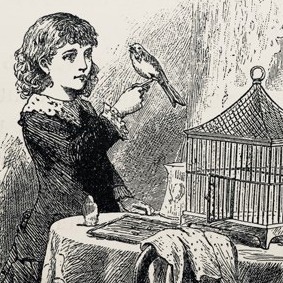From the Dawn Chorus to the Canary Choir
Notes on the Unnatural History of Birdsong
DOI:
https://doi.org/10.52537/humanimalia.9457Abstract
Birdsong is familiar but enigmatic: to some nothing but mechanical “instinct,” but so excessively exuberant that enthusiasts have linked the songs of birds to the development of the aesthetic sense. Where medieval scholars once saw the origins of music in the imitation of nature, by the Enlightenment birdsong was banished in the anthropocentric definition of art. In contrast to the philosophers, this paper focusses on human intervention in birdsong, focusing on the song of the domestic canary. The canary’s “contrived” song can be understood as a partnership between humans and birds, mediated by technology. Drawing on the European history of canary keeping, in Germany and Russia in particular, we turn first to the training of songbirds. Subsequently, we consider canaries as signature nonhuman performers, in spaces ranging from the home to the stage. Finally, we consider the role of technology, specifically recording and amplification, in making the canary’s song audible to audiences at a distance. The salutary hybridization of animal–human-machine contests the longstanding condescension of philosophers towards mechanical artifice and any contamination of the free beauties of nature.
Downloads

Published
Issue
Section
License
Copyright (c) 2020 Olga Petri, Philip Howell

This work is licensed under a Creative Commons Attribution-NonCommercial 4.0 International License.









